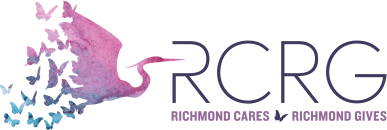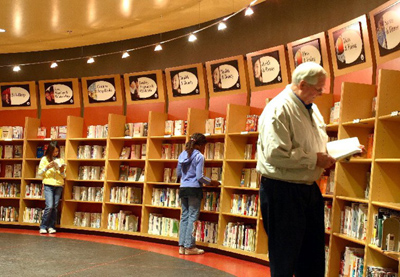Did you know?
More than 100 young leaders have graduated from the Youth Now program.
Each year, over 100 non-profit professionals attend our training opportunities.
Over two dozen non-profit organizations have participated in the Youth Now program.
The CCRR provides nearly 400 child care referrals per year.
On average, the CCRR hosts 30 workshops and training courses each year.
Every year, over 500 child care providers and parents attend CCRR training opportunities.
Every year, RCRG completes over 3,000 grocery orders for local seniors.
Nearly 300 seniors make use of our Better at Home services.
Our volunteer drivers complete more than 1,200 trips annually.
At least 350 people per year find a volunteer position using our Volunteer Match program.
Close to 500 volunteers support RCRG’s programs and services.
Volunteers contribute nearly 23,000 hours to our organization each year.
Each holiday season, the Richmond Christmas Fund helps more than 2,200 low-income residents.
Every year, the Christmas Fund provides over 600 children with toys, books, and sports equipment.
The Richmond Christmas Fund was first started by Ethel Tibbits, in the 1930s.
The number of Neighbourhood Small Grants we’ve awarded has increased every year since 2014.
Block parties are the most popular type of Neighbourhood Small Grant project.
Every year, the Richmond Women’s Resource Centre serves over 7,300 local women.
The Richmond Women’s Resource Centre currently offers 16 programs and services.
Nearly 60 volunteers support the Richmond Women’s Resource Centre, contributing nearly 2,500 hours per year.
Richmond is home to over 350 registered charities, all of which rely on volunteer support.
There are nearly 13 million volunteers across Canada.
International Volunteer Day is celebrated throughout the world on December 5.
There are 35 volunteer centres in British Columbia.
In 2016, the Foundation awarded 10 grants to non-profit organizations, worth a combined $59,000.
The Foundation manages $6 million in 60 Forever Funds, returning, on average, CPI plus 4%.
Between 2020 and 2022, the Foundation distributed $656,000 in grants, scholarships, charitable disbursements, and Emergency Community Support Funds.
Foundation activities result in the enhancement of our community and residents’ sense of belonging.
ROCA has raised over $21,000 for local charities.
ROCA has performed its Elementary School Concert Series to over 8,000 students.
ROCA provides mentoring and life changing opportunities for aspiring musicians.
The Richmond Arts Coalition was founded in November of 2005.
RAC co-produces the ArtRich exhibition every two years!
RAC highlights Richmond's arts events in a monthly email.
The Richmond Music School is the oldest not-for-profit music school in Richmond.
The Richmond Music School offers affordable music lessons through its diverse programming.
Our students performed 40 hours of music to welcome the Olympic athletes to the 2010 Olympic Games.
 Volunteer Now
Volunteer Now
 Community Giving
Community Giving
 Member Organizations
Member Organizations
 Community Foundation
Community Foundation
 Training Centre
Training Centre
 Services Directory
Services Directory
 Events Calendar
Events Calendar
 My RCRG
My RCRG





